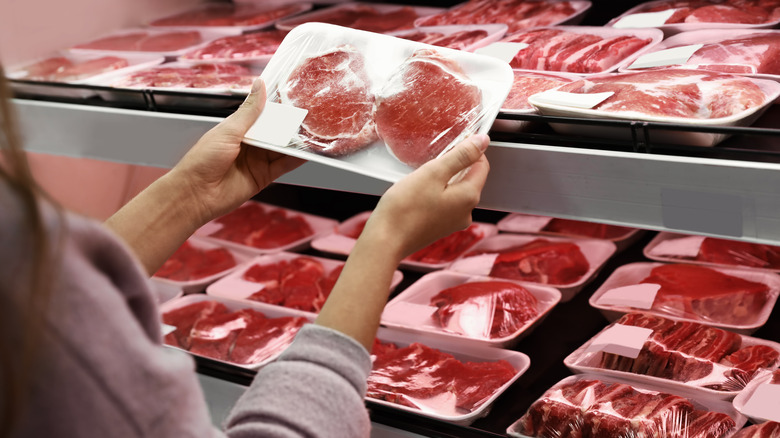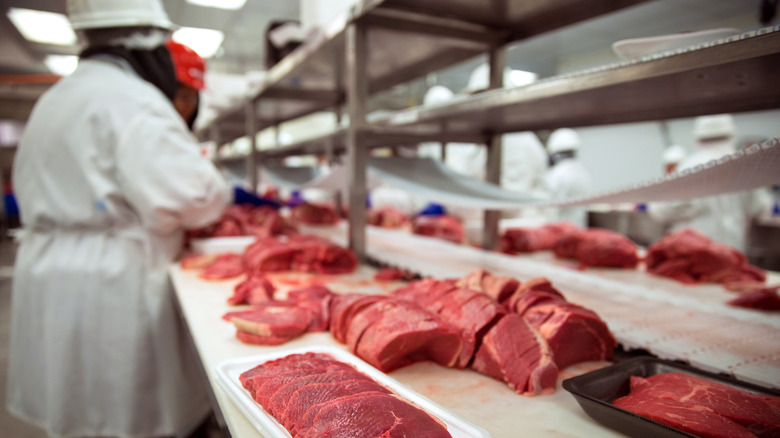This Scary Drug-Resistant Bacteria Was Just Found In British Pork
When it comes to pork, food poisoning, rinsing, and imminent expiration dates aren't the only concerns you have to consider.
A recent survey detected traces of an increasingly widespread and dangerous bacteria in select British pork products. Researchers at Fera Science and World Animal Protection tested 103 samples of all kinds of pork from various supermarkets in the United Kingdom. According to the World Animal Protection, these samples included organic and RSPCA assured pork, non-assured meats, and Red Tractor assured products. Red Tractor refers to meats that have met set standards for farming and quality, per Red Tractor.
Of these 103 samples, 25 were infected with enterococci bacteria. Of those, 23 also contained traces of superbugs: antibiotic-resistant bacteria with potentially life-threatening consequences. Bloomberg reported that the health and science community has grown increasingly concerned about such superbugs; infections unable to respond to treatments kill more than 1.2 million people annually.
Enterococci bacteria is increasingly concerning — and may have a common cause
According to The Guardian, enterococci bacteria are known to cause UTIs and wound infections — and are more prevalent than previously believed. A 2018 government survey detected enterococci resistant to vancomycin, an antibiotic, in a small percentage of tested pork and poultry products. Yet the latest tests found traces of glycopeptide-resistant superbugs — which encompass vancomycin-resistant bacteria — in 13 of the 103 samples.
These samples also included organic meat, suggesting that no product is immune to the bacteria's impact. It's worth noting, however, that the organic and RSPCA verified pork was overall less antibiotic resistant than the non-assured and Red Tractor meats (via the World Animal Protection).
Yet, regardless of the kind of pork, the surge in superbugs may stem from a similar cause.
"This could indicate that antibiotics are being overused in low welfare farms to stop animals getting sick in poor conditions and exasperating the world's drug resistance crisis," said Lindsay Duncan, Farming Campaigns Manager for the World Animal Protection (per the World Animal Protection). Duncan called for the U.K. to halt antibiotic usage on farm animals, as well as to reduce animal product consumption.
So as the U.K. responds to the bacterial findings, it may be best to table your next pork endeavor.

